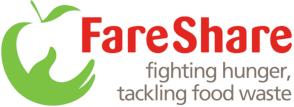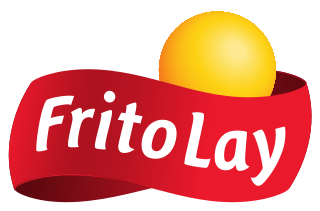
Nabisco is an American manufacturer of cookies and snacks headquartered in East Hanover, New Jersey. The company is a subsidiary of Illinois-based Mondelēz International.

The Confederation of Swedish Enterprise or Swedish Enterprise is a major employers' organization for private sector and business sector companies in Sweden. It has 49 member associations representing 60,000 member companies with more than 1.6 million employees.
United Biscuits (UB) is a British multinational food manufacturer, makers of McVitie's biscuits, Jacob's Cream Crackers, and Twiglets. The company was listed on the London Stock Exchange and was once a constituent of the FTSE 100 Index. In November 2014, the company was acquired by Yıldız Holding and is now part of Pladis.

PepsiCo, Inc. is an American multinational food, snack, and beverage corporation headquartered in Harrison, New York, in the hamlet of Purchase. PepsiCo's business encompasses all aspects of the food and beverage market. It oversees the manufacturing, distribution, and marketing of its products. PepsiCo was formed in 1965 with the merger of the Pepsi-Cola Company and Frito-Lay, Inc., PepsiCo has since expanded from its namesake product Pepsi Cola to an immensely diversified range of food and beverage brands. The largest and most recent acquisition was Pioneer Foods in 2020 for US$1.7 billion and prior to it was buying the Quaker Oats Company in 2001, which added the Gatorade brand to the Pepsi portfolio and Tropicana Products in 1998.

The water industry provides drinking water and wastewater services to residential, commercial, and industrial sectors of the economy. Typically public utilities operate water supply networks. The water industry does not include manufacturers and suppliers of bottled water, which is part of the beverage production and belongs to the food sector.
The Center for Science in the Public Interest (CSPI) is a Washington, D.C.-based non-profit watchdog and consumer advocacy group that advocates for safer and healthier foods.
The British Sandwich & Food to Go Association (BSA) was founded in January 1990 and is based in Chepstow. The aim of the organization is to improve the sandwich industry by setting standards and rewarding excellent sandwich manufacturers and retailers in the annual Sammies. The BSA is run non-commercially on behalf of its members by J&M Group, Ltd. This same group also runs various other organisations similar to the BSA such as the Pizza Pasta & Italian Food Society.

WRAP is a British registered charity. It works with businesses, individuals and communities to achieve a circular economy, by helping them reduce waste, develop sustainable products and use resources in an efficient way.
A Guideline Daily Amount (GDA) was a nutrition facts label originally designed in 1996 in the United Kingdom (UK) as a collaboration between the government, the food industry and consumer organisations. GDAs appeared on the front and back of food packaging to help raise awareness of how much a food item represents as a proportion of a balanced intake each day in each food element. The British initiative was followed in the European Union (EU) and influenced similar systems in other countries including the United States.

Walkers Snack Foods Limited, trading as Walkers, is a British snack food manufacturer mainly operating in the UK and Ireland. The company is best known for manufacturing potato crisps and other snack foods. In 2013, it held 56% of the British crisp market. Walkers was founded in 1948 in Leicester, England, by Henry Walker. The Walkers family sold the business in 1970 to American food producer, Standard Brands. In 1989, Walkers was acquired by PepsiCo, owners of US snack brand Frito-Lay.

FareShare is a charity network established in 1994, which aims at relieving food poverty and reducing food waste in the United Kingdom. It does this by obtaining good quality surplus food from the food industry that would otherwise have gone to waste and sending it to frontline charities and community groups across the UK.

Obesity in the United Kingdom is a significant contemporary health concern, with authorities stating that it is one of the leading preventable causes of death. In February 2016, former Health Secretary Jeremy Hunt described rising rates of childhood obesity as a "national emergency". The National Childhood Measurement Programme, which measures obesity prevalence among school-age pupils in reception class and year 6, found obesity levels rocketed in both years groups by more than 4 percentage points between 2019–20 and 2020–21, the highest rise since the programme began. Among reception-aged children, those aged four and five, the rates of obesity rose from 9.9% in 2019–20 to 14.4% in 2020–21. By the time they are aged 10 or 11, more than a quarter are obese. In just 12 months, the rate is up from 21% in 2019–20 to 25.5% in 2020–21.
Scotland Food & Drink is the industry leadership trade association established in 2007. It aims to collaboratively grow the value of the industry to £30 billion by 2030 and to reinforce the reputation of Scotland as a Land of Food and Drink.

Frito-Lay, Inc. is an American subsidiary of PepsiCo that manufactures, markets, and sells corn chips, potato chips, and other snack foods. The primary snack food brands produced under the Frito-Lay name include Fritos corn chips, Cheetos cheese-flavored snacks, Doritos and Tostitos tortilla chips, Lay's and Ruffles potato chips, Rold Gold pretzels, and Walkers potato crisps. Each brand generated annual worldwide sales over $1 billion in 2009.
The North East of England Process Industry Cluster (NEPIC) is an economic cluster developed in accordance with Michael Porter's theories and strategies regarding industrial clusters. The chemistry-using sectors in North East England, where more than 1,400 businesses are headquartered in the industry's supply chain, formed this Process Industry Cluster. In the north-east of England, the industry employs approximately 35,000 direct workers and around 190,000 indirect workers, who collectively account for more than one-third of the area's industrial economy. Companies in the cluster produce 35% of the pharmaceuticals and 50% of the petrochemicals used in the UK, making this area the only net exporter of goods from the country. The area has more than £13 billion in exports.

Monde Nissin Corporation is a Philippine food and beverage company with a portfolio of brands across instant noodles, biscuits, baked goods, culinary aids and alternative meat products categories, including Lucky Me!, SkyFlakes, Fita, M.Y. San Grahams and Nissin. Monde Nissin also sells its alternative meat products globally under Quorn Foods and the Quorn brand.
The British Automation and Robot Association (BARA) is a UK trade membership organisation headquartered in Wallington, Surrey.
The chocolate industry in the Philippines developed after introducing the cocoa tree into Philippine agriculture. The growing of cacao or cocoa boasts a long history stretching from the colonial times. Originating from Mesoamerican forests, cacao was first introduced by the Spanish colonizers four centuries ago. Since then the Philippine cocoa industry has been the primary producer of cocoa beans in Southeast Asia. There are many areas of production of cacao in the Philippines, owing to soil and climate. The chocolate industry is currently on a small to medium scale.
The Processing and Packaging Machinery Association (PPMA) is a UK trade membership organisation headquartered in Wallington, Surrey.










